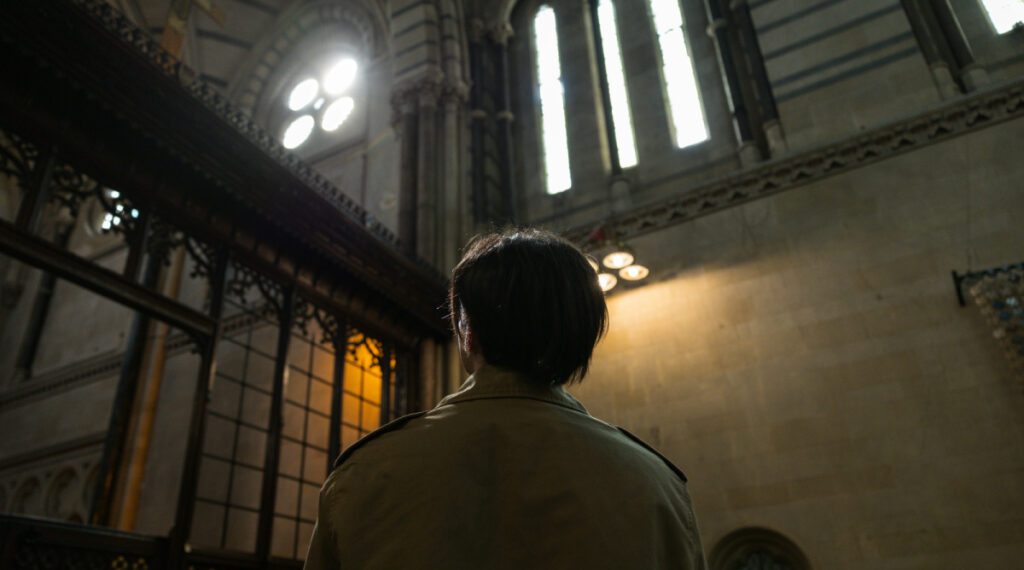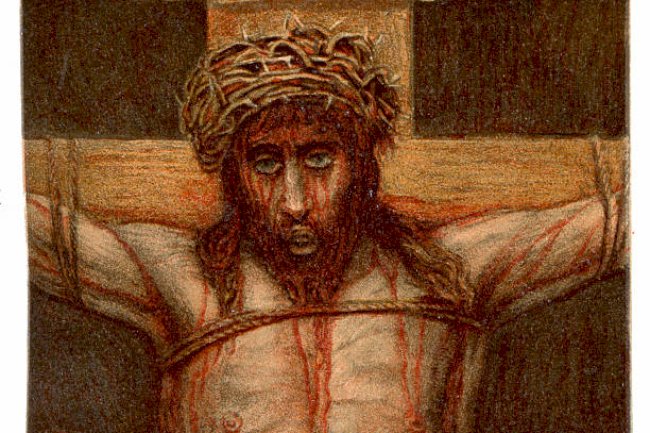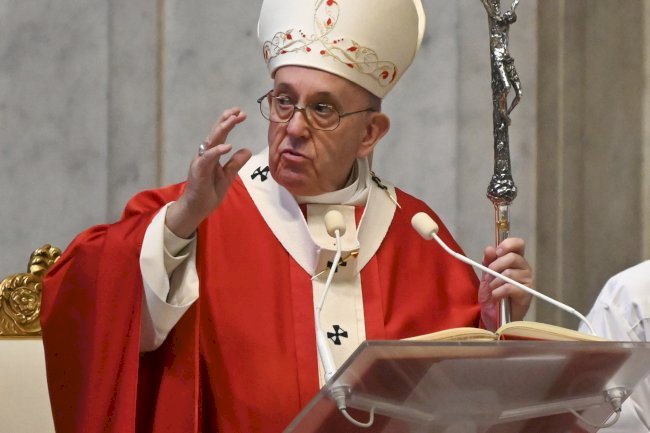A New Approach to Spiritual Theology


An exploration of mystical wisdom in the Church needs to be engaged in a manner that deepens the pursuit and understanding of Christian holiness. Spiritual theology takes up the study of mysticism and ascetical practices. Oftentimes, this is seen as important for applied and practical explorations. In particular, wonderful works have been written about how to live the Christian life in its fullness. This is a good and noble effort. However, an exploration of the Catholic mystical tradition is pushed beyond this effort because of the very subject matter the tradition contains. Beyond the practicals of Christian living, there is also the speculative – that is, the contemplative. The saints and mystics cry out to us to open the eyes of our hearts and behold the goodness of God. For them, this openness to divine mystery, though healing, is no therapeutic self-improvement project. What they call us to see, to behold, to contemplate is a wonder that deeply enriches not only our own lives but the mere beholding of it, fills the world, including our own culture and age, with transforming power. Insofar as it is concerned with this mystical wisdom, spiritual theology also needs to engage these questions, too.
Although treatises on the spiritual life can be found in the writings of the earliest theologians and Fathers of the Church, spiritual theology did not emerge as a distinct and well-defined branch of sacred doctrine until the eighteenth century. Traditionally, sacred doctrine possessed a remarkable unity that was at once the test of doctrinal orthodoxy and a sign of authentic theology — the science that studies God and all things in relation to God. However, by the time of the Council of Trent (1545-1563), the attacks of heresy and the changing political, cultural, and religious conditions made it necessary for theologians to investigate the truths of faith more deeply. The result was that sacred doctrine gradually became more diversified, and was ultimately divided into areas of specialization or distinct branches of the one theology.1

So begins Jordan Aumann’s great work on spiritual theology. Spiritual theology is one of many specializations or branches of the theological enterprise. The metaphor “branch,” as in a tree branch, suggests that the many branches come together as a whole living organism sharing a common stump. So it is a living part of a greater whole and this whole reality is radical. That is, it is rooted in divine revelation and properly speaks the language of the Sacred Scriptures and Tradition as these have been handed on for two millennia. Yet, as the student of theology well knows, these branches are not always in harmony with one another, at times making seemingly contradictory claims, in such a way as to be detrimental to the unity and mission of the Church. Siloed discussions among specialists fail the faithful in their task to witness to Christ in the temporal order and they fail ministers of the Gospel who oftentimes complete a course of study for Holy Orders without a sense of the whole, the wisdom, that their ministry requires.
To aid the mission of the Church, the fragmentation of theology requires a new wholeness that the mystical tradition of the Church speaks into. Every specialization may follow its own method and approaches, but the contemplation and praise of the Church is rooted in something deeper. The mystical wisdom of the saints sounds these depths and so spiritual theology has a responsibility toward the other specializations so that, in the integrity of their explorations, they stay radical – that is, rooted in Christ. Here, we need to find an approach to spiritual theology that can be healing for the whole of theology.
We need to find an approach to spiritual theology that can be healing for the whole of theology.
Is a Theological Exploration of Mystical Wisdom Reducible to Moral Theology?
Spiritual theology is clumped together with moral theology because both projects take up the question of holiness and human agency. This ascetico-mystico approach addresses counsels for spiritual growth, and explores the nature, stages, means and aids to the perfection of holiness in the Christian faith. Garrigou-Lagrange argues for this.2 Like the rest of theology, there is quite a bit of divergence in definitions and terminology among them. Nonetheless, each spiritual tradition has successfully used this approach to ground its practices in principles that derive from both Divine Revelation and common sense.
Yet, relegating the spiritual to a subset of moral considerations falls short of an important task for the renewal of the Church. While a moral approach to spiritual questions intends to aid an individual’s pursuit of holiness, it may not effectively situate this pursuit in a context that is conscious enough of Trinitarian, incarnational, ecclesial and Marian dynamics. These dimensions of holiness need to be explored and discussed to answer the challenges that a materialistic and highly alienated culture throws at the Christian spiritual tradition. Unquestioned ideological assumptions, oftentimes promoted by untested psychological theory, challenge the awareness of Divine Paternity and Filiation in the spiritual life so that the Christian does not have the ecclesial or Marian foundations to adequately appropriate the spiritual counsels of a given spirituality in the Church. Self-reliance and personal achievement are pre-critically promoted to actualize the “true self” in ways that cast suspicion on important efforts in obedience and asceticism.
In such a milieu, contemplation and union with God can even be sought as if feats of religious industry rather than gifts. Indeed, this same industrial approach to holiness can incline many pastors toward the error of “Catholic Church Inc.” That is, they take this same individualized approach to holiness and apply it to parish or diocesan life. Effective ministry is evaluated sheerly on the quantifiable plane: how many, how often, how financially beneficial, and at what cost. The results are disastrous. Seeing themselves as cogs in the wheel of religious industry whose purpose is to please their consumer base, or at least, janitors who must close down a museum of antiquated religious practices with as much decorum as possible, ministers lose their sense of identity and purpose in the corporate machine just as do contemplatives striving to attain feats of spiritual achievement.
This same industrial approach to holiness can incline many pastors toward the error of “Catholic Church Inc.”
What Does Spiritual Theology Study?
The proper object of spiritual theology is not cogs and janitors, not the heroic pietistic achievements of the spectacular individuals, but instead God Himself who is raising up sons and daughters, bound together by the blood of Christ in the power of the Holy Spirit for the salvation of the world and the glory of the Father. In addition to developing counsels that direct human agency in the pursuit of holiness, spiritual theology also needs to address identity and purpose in the world in which we live and in relation to the Holy Trinity.
The proper object of spiritual theology is…God Himself who is raising up sons and daughters, bound together by the blood of Christ in the power of the Holy Spirit for the salvation of the world and the glory of the Father.
Beyond attention to psychological mechanisms related to human behavior in prayer and the Christian life, mystical theology explores deeper anthropological questions. As a branch of theology that explores the realities of restlessness, sin, and death, this part of theology advances conscious awareness and proper attitudes toward the Holy Trinity and Christ’s work of redemption to bring into dynamic focus the greatness of deifying grace at work in humanity. To provide a more meaningful exploration of how to grow in holiness, spiritual theology takes up the ultimate end of the divine economy in relation to the destiny and whole manner of life of the Church in the communion of her members.

Advances in Spiritual Theology
Spiritual theology advances because God is always at work in human history and the Risen Lord is present bringing to completion the great things He has begun in community, every heart, in every situation. Along with practical questions related to human agency in the moral sphere concerning the perfection of the Christian life, spiritual theology could also be approached speculatively. Here, the theological exploration of Christian mysticism becomes a conversation about the meaning of holiness in the Church from the standpoint of Divine Agency in our own cultural milieu, everything leading up to it and even, in the historical direction our society has set out for itself. Understanding the wisdom of the saints in relation to the historical concrete particulars of the society and culture in which they live means, beyond hagiography and literary analysis, the discernment of how God continues to act in the ever-changing contingencies of life. A greater conscious awareness of Divine Power at work in the weaknesses and finitude of the communion of saints allows us to contemplate even more profoundly the ramifications of the mystery of the Trinity and the Incarnation about which we have only scratched the surface, even after two millennia.
Spiritual theology advances because God is always at work in human history and the Risen Lord is present bringing to completion the great things He has begun in community, every heart, in every situation.
To really understand divine agency in human holiness in the Church today, the light of Scripture and tradition expressed in the wisdom of the saints in their own cultural and historical challenges opens a pathway forward. Our own theological investigation of Christian mysticism unfolds in a materialistic culture. An inherent societal nihilism is at odds with the Christian claim. The fruits of a mystagogical investigation into Christian holiness will be of only limited value so long as it fails to speak into the challenges to hope and human thriving of our own day. The recent magisterium, however, empowers the contemporary believer by raising, even in a noisy world that pushes prayer out of the public square, to the status of Doctor of the Church so many great contemplatives, including women, the magisterium. When the questions about divine and human agency are taken together with the wisdom of the saints and greater cultural insight, better counsel for practical human actions and deeper the speculative (or contemplative) penetration mysteries of the faith enrich each other. This can only contribute to advancing a principle of integration for the whole theological enterprise which is often fragmented in its branches as well as advance the mission of the Church in ways that cannot be anticipated.
A Mystagogical Approach to Theological and Mystical Wisdom
Spiritual theology is concerned with the mutual relationship of rational exploration of sacred doctrine and mystical contemplation of saving truth. Here we touch on a mystagogical dimension related to the very essence of spiritual theology. Mystagogy is a moment of post-baptismal catechesis in which the sacramental encounter with Christ is deepened and one seeks spiritual maturity. Developed during the Patristic Period in which it was used to explain the sacraments and other “arcana” that can only be known by experience, the effort could extend to the whole mystery of Christian life of holiness as a deeper contemplation of the mystery of faith.
Mystagogy is a moment of post-baptismal catechesis in which the sacramental encounter with Christ is deepened and one seeks spiritual maturity.
Mystagogy does not try to arrange the holy mysteries of our faith as if they were merely artifacts to be manipulated. The Christian mystery is a living reality, the living source of new life which does not admit of being subjugated to ideology, psychological result, social agenda or political cause. By directing our gaze to the immense horizons of the Paschal Mystery, a mystagogical approach to spiritual theology is the pursuit of an understanding in which there is a spiritual space for the Christian Mystery to unfold its dynamism in new ways.
In this approach, scientific discourse in spiritual theology plays the role of John the Baptist, preparing the way, pointing not to itself, but to the Bridegroom who is always coming in new ways. At the same time, this mystagogical approach protects the journey of faith that the student of this wisdom of the saints must take to the very limits of human reason, where the natural light of the intellect is overshadowed by heaven’s radiance.
In this approach, scientific discourse in spiritual theology plays the role of John the Baptist, preparing the way, pointing not to itself, but to the Bridegroom who is always coming in new ways.
All good theology leads to this sacred place, this holy ground on which, led by love, only the naked feet of faith dare to tread. If this study is successful, the mind discovers its poverty before a Living Flame, a Burning Bush from which divine memories and eternal desires are disclosed. Moreover, it seeks this ground not simply for the spiritual experience as if a tourist of divine things. Rather, the student engaged in this effort has heard an invitation and needs to draw near. Such a student is aware of the plight of his brothers and sisters, and has a heart open to what may come. In this way, spiritual theology’s scientific wisdom orders the intellect to perfect praise, a leap of worship in which every thought and feeling is baptized in Christ.
A Way of Life
Such ongoing encounters with the Word of the Father is meant to imprint the very substance of the soul in transforming ways. It is not enough to study the wisdom of the saints as if one were merely a bystander; one must participate in it and allow oneself to be implicated in its plight. A certain openness to appropriating the spiritual practices of the saints for oneself is the sine qua non of the approach to spiritual theology that we need today. It is a matter of animating scientific study with mystical wisdom. The Risen Eucharistic Lord deserves no less. Though it would seem impossible to say anything worthy of this Dawning Splendor, a student of this science feels compelled to stammer for His glory nonetheless. Such a conversation about holy things requires far more than reading and writing, the discipline of long hours of silent listening, prayer, solitude, fasting, and the patient endurance of the many trials.
Tags
What's Your Reaction?














